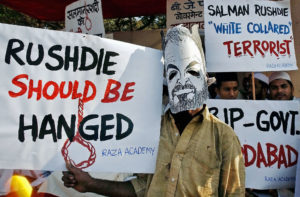By the last count, there were more than 200 convicted terrorists — most Islamist, but some far-Right — currently housed at Her Majesty’s pleasure in British prisons, with a further 200 or so convicted of other offences but deemed similarly radicalised. It is a testament to how “out of sight, out of mind” prisons are that attention among extremism and terrorism experts has meandered elsewhere —despite there being higher numbers of incarcerated Islamist extremists than ever before, and despite what we know about prisons serving as jihadist incubators across the world.
Many of Britain’s most dangerous jihadists are imprisoned, perhaps affording us this false sense of security. But the sporadic information we get from behind the prison walls is anything but reassuring. While much hope is pinned on the largely uncharted territory of “deradicalisation”, its targets are making a mockery of these efforts. As the Chief Inspector of Prisons made clear a few weeks ago, the highest-risk prisoners in the country are outright boycotting these interventions, with some offenders listening to music or pretending to sleep during their one to one sessions.
On the other hand, even those who appear to comply may pose a threat, as Usman Khan’s slaying of those who sought only to help him tragically demonstrated. While participating in an educational course or qualification can be taken by authorities as a sign of progress, it is no objective measure of deradicalisation, not least when the knowledge gained can be put to use for the cause, to better proselytise or wage war.
Prisons are not isolated and cut off from the world, their walls are porous: people, information and material come and go. Meanwhile, the jihadists inside do not see imprisonment as an end to their struggle — so nor should we. The West’s experience with jihadism, now into its fourth decade, shows how its adherents often see their incarceration as a rite of passage and opportunity: to better prepare for jihad, to gain qualifications and skills on the taxpayer, to forge crucial connections and relationships, to proselytise among the prison population, and to test their faith.
Prisons around the world have proven integral to the global jihadist movement’s remarkable resiliency and regenerative capability, but so has naivety. In 2005, a jailed Parisian named Chérif Kouachi led his social worker to believe he had been “tricked” into associating with extremists busy funnelling fighters to the insurgency in Iraq. On the inside, however, Chérif fraternised with jihadi veteran Djamal Beghal, who had helped recruit “shoe bomber” Richard Reid in London in the Nineties. Exactly a decade after being “tricked”, Chérif and his brother Saïd burst into the offices of Charlie Hebdo magazine to massacre the writers, satirists and illustrators inside.
Today, no longer pick-up riding or passport-burning, the Islamic State’s jihadists are marooned in the dilapidated camps and makeshift prisons of Northern Syria, where — like the Islamists in Bosnia and Afghanistan before them — they play back our own tropes about their manipulation and vulnerability for the domestic audiences they once threatened on social media. Some even offer to help deradicalise or prevent radicalisation in future, while lying about their own trajectory into terror.
Inside the British prison system though, a more bellicose extremist subculture appears to be developing. According to a recent review, among the imprisoned extremists an Islamist gang culture has developed. The counterterrorism lead at HMP Whitemoor, the site of Britain’s first attack inside the prison walls, told an inquest that terror offenders are held in a kind of “perverse esteem”. while Independent Reviewer of Terrorism Legislation, Johnathan Hall QC, wrote how some offenders enjoy a “distinctly heroic profile”.
The risk, though, is not just of attacks. The failed state-building project of Isis should have made clear there is an ideological endgame, an all-encompassing worldview, a way of living and a revolutionary overhaul of state and society which jihadis seek to usher in. In their own microcosms, imprisoned jihadists are trying to live their lives in accordance with this endgame from the inside. There are cases of extremists intimidating staff and prisoners who do not comply with their interpretation of Sharia and holding crude Sharia courts which mete out floggings. Self-styled ‘emirs’ exert such influence over prison wings that authorities sometimes appeal to them to help restore order.
Surrounded by like-minded practitioners of their faith, they are living pure, virtuous and rigorist lives in accordance with God’s will. To them, this life of belief is the straight and narrow, while the rest of us are morally decayed hypocrites and criminals. For them, the idea they need deradicalising or rehabilitating is a bad joke and worthy of scorn. Just a few hours a week of mentoring and interventions stands little chance of competing with the offender’s entire social circle, the moral universe which colours it, the norms which govern their every action and interaction, and the status they enjoy as a terrorism offender on the inside.
This is not to say that there is no hope, but that it will take an almighty effort to dismantle a worldview that we don’t seem able to fully comprehend, or at times even discuss out of misplaced sensitivities. Being realistic about the scale of the challenge and treating the extremists as intellectually serious and rational beings, rather than unthinking vessels driven to terrorism by circumstances beyond their control, gives the best hopes of averting tragedy like at Fishmonger’s Hall.
As we have seen, when the chips are down, jihadists have historically pleaded innocence or ignorance. But the reports above suggest this is not how Britain’s imprisoned extremists are behaving. Far from it. This indicates that they do not perceive themselves to be in a state of weakness but in one of strength. After living their lives as close as possible to the ideal Islamic state from inside the prison walls, it seems likely that upon release, many will continue to try to do so while they wait for the caliphate or divine reward they are assured will eventually arrive.
I have written before about the possibility of the jihadist movement in Europe evolving into a belligerent and destructive social force, rather than one merely focused on mass-casualty attacks, which were only ever a means to an end. The subcultures developing in prisons translating to the outside world would see these extremists creating micro-communities which reject and withdraw from the surrounding unbelief of society, in order to instil their own norms and values in line with the principle of “loyalty and disavowal” (al-wala’ wa’l-bara’).
Of course, the problem should not be overstated: the numbers being discussed here may be unprecedented, but they are nonetheless small. There are graver threats and societal issues facing Britain and her allies. But at the same time, being prepared to combat the threat, not just through security or intelligence, but intellectually, is critical. In certain locations, a mere handful of extremists have already been able to multiply their followings into several hundred over the course of a decade. The networks — perhaps better thought of as micro-communities— they fostered would go on to fill the ranks of Isis.
Far from radicalised online and overnight, many of those who migrated to Isis’s Caliphate project were extremist activists who were already, as Bernard Rougier put it, “living in an imagined caliphate” from inside the unbelief of the West. Through the barrel of an AK-47, Isis transformed their fantasy into an irresistible operational reality, so they merely diverted their energy from practice and proselytising in the likes of Brussels, Trappes, Portsmouth or Gothenburg towards migration to Islamic State.
The risk is that the genie is again out of the bottle. 9/11 resulted in al-Qaeda’s decimation but nonetheless succeeded in advertising jihadism to the entire world on live television. ISIS, by contrast, declared itself a caliphate and invited confrontation with the West which reduced it to rubble, but nevertheless succeeded in advertising not just attacks, but the Salafi-jihadist endgame to the world. We do not yet know who and how many were paying attention.
With the time they are afforded in British, European and Kurdish prisons, the movement is currently assessing the mistakes and shortcomings of that episode so as not to repeat them. Some will conclude the attacks of Bataclan or Manchester Arena were counterproductive, so will channel their energies into other means but remain believers. Others will no doubt remain committed to more of the same. Despite its apparent medieval rigidity, jihadism is a constantly mutating phenomenon which adapts to its own time and place. How the movement evolves and re-emerges from its current ailing condition depends on the discussion and debate happening right now inside cells and on prison landings. It’s time to start paying attention.
Disclaimer
Some of the posts we share are controversial and we do not necessarily agree with them in the whole extend. Sometimes we agree with the content or part of it but we do not agree with the narration or language. Nevertheless we find them somehow interesting, valuable and/or informative or we share them, because we strongly believe in freedom of speech, free press and journalism. We strongly encourage you to have a critical approach to all the content, do your own research and analysis to build your own opinion.
We would be glad to have your feedback.
Source: UnHerd Read the original article here: https://unherd.com/




